1948 White House Conference on Family Life
¶ 1 Leave a comment on paragraph 1 0 NCFR leaders and members were deeply involved in the planning and execution of two very important conferences during this year that demonstrated the importance of the family in social history and increased the need for better defining the field of family studies.
¶ 2
Leave a comment on paragraph 2 0
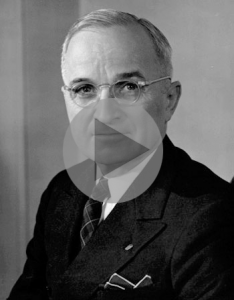 Listen to President Harry S. Truman’s speech to the 1948 White House Conference on Family Life
Listen to President Harry S. Truman’s speech to the 1948 White House Conference on Family Life
¶ 3 Leave a comment on paragraph 3 0 The White House Conference on Family Life—held May 6–8—had been in the planning stages for 4 years. Ernest G. Osborne, the President-Elect of NCFR, was appointed program coordinator of this most important event, which was strongly supported by President Harry S. Truman. One hundred twenty-five major national organizations, having a combined membership of 40 million members from the fields of education, health, law, youth services, social services, business, labor, women’s clubs, and churches, were involved. The Board President of this undertaking was Eric Johnson, President of the Motion Picture Association of America.
¶ 4 Leave a comment on paragraph 4 0 The prep work for the conference was done by three major divisions:
¶ 5 Leave a comment on paragraph 5 0 Division 1 covered the background statistical data providing the latest picture of American families—income; expenditures for food, clothing, housing, and so on; and trends in births, divorce, deaths, and anything measurable.
¶ 6 Leave a comment on paragraph 6 0 Division 2 covered the cycle of family life. Dr. Evelyn Millis Duvall and Dr. Reuben Hill were instrumental in drawing together all the research on the various stages of family growth and development, interpersonal relationships, and first-hand experiences. Scores of family science scholars worked with them on this.
¶ 7 Leave a comment on paragraph 7 0 Division 3 covered action areas of family life. Ten action areas were defined, and outstanding physicians, lawyers, recreation leaders, housing specialists, educators, social workers, counselors were solicited to help prepare materials for debate and discussion. The 10 areas and their chairs included:
- ¶ 8 Leave a comment on paragraph 8 0
- Esther McGinnis, Director, Merrill–Palmer Institute
- Housing: Coleman Woodbury, University of Wisconsin
- Home Management: Pauline Nickell, Iowa State University
- Recreation: John McDowell, Executive Director, National Federation of Settlements
- Community Participation: Howard McClusky, University of Michigan
- Legal Problems: Reginald Heber Smith, American Bar Association
- Counseling and Guidance: Emily Hartshorn Mudd, Marriage Council of Pennsylvania
- Social Welfare: Ralph Uihlein, Milwaukee, WI
- Health and Medical Care: Dr. Leona Baumgartner, New York Department of Health, Dr. Haven Emerson, New York State.
- Economic Welfare: Mr. John Corson, Dr. Charles Stewart
¶ 9 Leave a comment on paragraph 9 0 The conference consisted of groups of delegates working on specific issues to dig deep into the study and analysis of factors affecting today’s family and how the participating organizations can develop their own programs to deal with the issues. It was also intended that the major areas of research needed would be identified.
¶ 10 Leave a comment on paragraph 10 0 Read highlights from the 1948 National Conference on Family Life
¶ 11 Leave a comment on paragraph 11 0 Read the promotional brochure for the 1948 National Conference on Family Life
¶ 12
Leave a comment on paragraph 12 0
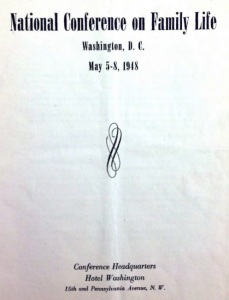 Read the program book from the 1948 National Conference on Family Life
Read the program book from the 1948 National Conference on Family Life
Gallery
- Ernest Osborne
- Evelyn Millis Duvall
- Reuben Hill
- Emily Hartshorn Mudd


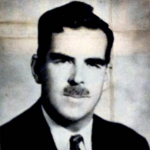
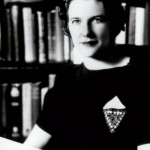
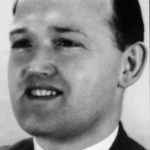
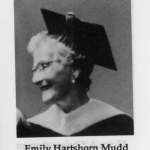
Comments
0 Comments on the whole Page
Login to leave a comment on the whole Page
0 Comments on paragraph 1
Login to leave a comment on paragraph 1
0 Comments on paragraph 2
Login to leave a comment on paragraph 2
0 Comments on paragraph 3
Login to leave a comment on paragraph 3
0 Comments on paragraph 4
Login to leave a comment on paragraph 4
0 Comments on paragraph 5
Login to leave a comment on paragraph 5
0 Comments on paragraph 6
Login to leave a comment on paragraph 6
0 Comments on paragraph 7
Login to leave a comment on paragraph 7
0 Comments on paragraph 8
Login to leave a comment on paragraph 8
0 Comments on paragraph 9
Login to leave a comment on paragraph 9
0 Comments on paragraph 10
Login to leave a comment on paragraph 10
0 Comments on paragraph 11
Login to leave a comment on paragraph 11
0 Comments on paragraph 12
Login to leave a comment on paragraph 12
0 Comments on paragraph 13
Login to leave a comment on paragraph 13
0 Comments on paragraph 14
Login to leave a comment on paragraph 14
0 Comments on paragraph 15
Login to leave a comment on paragraph 15
0 Comments on paragraph 16
Login to leave a comment on paragraph 16
0 Comments on paragraph 17
Login to leave a comment on paragraph 17
0 Comments on paragraph 18
Login to leave a comment on paragraph 18
0 Comments on paragraph 19
Login to leave a comment on paragraph 19
0 Comments on paragraph 20
Login to leave a comment on paragraph 20
0 Comments on paragraph 21
Login to leave a comment on paragraph 21
0 Comments on paragraph 22
Login to leave a comment on paragraph 22